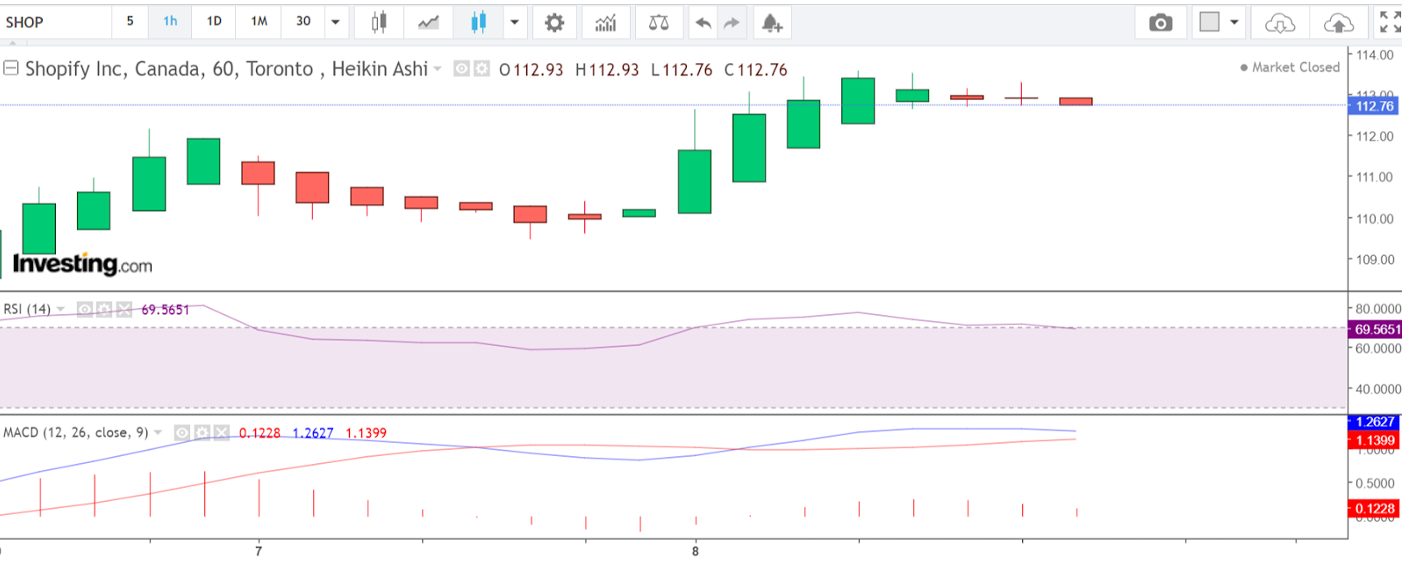CFD Trading in Canada



Looking to trade rising and falling financial markets like Canadian stocks while turbocharging your results with a small outlay? Contracts for difference, or CFDs, have become a go-to option for many Canadian traders.
This beginner’s guide to CFD trading in Canada breaks down the basics, with a detailed walkthrough of a trade.
Quick Introduction
- CFDs allow you to trade Canadian, other North American, and global markets using leverage, meaning you control a larger position with a smaller investment, amplifying profits and losses.
- CFDs became available in Canada in the 2000s after growing interest, but are subject to rules from the Canadian Investment Regulatory Authority (CIRO), notably 1:50 leverage limits.
- CFD trading is riskier than other forms of trading, mainly due to leverage. Sudden price swings can lead to quick losses. Use risk management like stop-loss orders to limit damage.
Best CFD Brokers in Canada
After exhaustive tests, these are our top-rated CFD brokers for Canadian traders in 2026:
How Does CFD Trading Work?
CFD trading allows you to trade in financial markets without the capital investment needed to own actual assets.
Leverage lets you open large positions while only committing a fraction of the total value or margin needed to, for instance, purchase the equivalent amount of quoted shares on Canadian stock markets.
Let’s consider a trading scenario using a popular Canadian market. The S&P/TSX Composite Index (SPTSX) is a capitalization-weighted equity index that tracks the performance of the largest companies listed on Canada’s primary stock exchange, the Toronto Stock Exchange (TSX).
If you believe the SPTSX will rise, you’d enter a CFD buy position. If each contract is valued at CAD 24,000 (roughly the current index price), and your brokerage requires a 5% margin, then to take a position on 10 contracts, you’d need a margin requirement of CAD 12,000 (24,000 per contract x 10 contracts x 5%).
If the SPTSX rises to 24,200, the price increase would yield CAD 200 per contract. By closing your position, you would take a profit of CAD 2,000 (10 contracts x CAD 200), less any fees your broker charges.
Alternatively, if the index falls to CAD 23,800, you would lose CAD 2,000, illustrating the risks involved with CFD trading. You can control a significant size with leverage, but gains and losses are magnified.
Understanding how the concepts of margin and leverage work is fundamental to your future success.So, if you’re new to CFD trading, why not consider opening a demo trading account? It provides an excellent introduction to practice strategies and builds your confidence before you risk real money.
What Can I Trade?
CFD trading in Canada delivers all sorts of trading opportunities across many financial markets, both in Canada and internationally:
- Stock CFDs – You can trade individual Canadian stocks listed on the Toronto Stock Exchange (TSX). These highly liquid firms can be traded as CFDs without the added expense incurred if you buy the shares.
- Index CFDs – The S&P/TSX Composite Index (SPTSX) is a weighted price index comprising the most capitalized stocks quoted on the TSX and gets calculated in real-time. Traders often choose index CFDs to capitalize on Canada’s overall market performance rather than trade individual shares. You can also explore index CFDs on other global indices like the Dow Jones or the NASDAQ.
- Forex CFDs – The Canadian dollar (CAD) is actively traded in the foreign exchange market. Popular currency pairs include USD/CAD and EUR/CAD. These pairs provide liquidity and opportunities for short-term traders. USD/CAD is one of the most traded currency pairs worldwide because of trade between the two neighbouring countries.
- Commodity CFDs – You can speculate on commodities like natural gas, with Canada’s western region a major global producer and oil, with the oil sands in Alberta contributing to the country’s huge oil business.
- Crypto CFDs – The curiosity and enthusiasm surrounding digital asset trading are present in Canada. Retail investors can trade cryptocurrencies like Bitcoin and Ethereum as CFDs, giving them access to the high-risk world of digital assets.
Is CFD Trading Legal In Canada?
CFD trading is legal in Canada.
Canadian brokers should be registered with the Canadian Investment Regulatory Authority (CIRO), which ensures strict rules regarding client funds, transparency, and risk management.
Brokers must meet minimum capital requirements and offer negative balance protection; you can’t lose more than Canadian dollars than you invest.
Financial markets in Canada are regulated at the provincial level, so rules may vary slightly depending on where you live. For instance, the Ontario Securities Commission (OSC) oversees trading in Ontario, while the British Columbia Securities Commission (BCSC) does the same in British Columbia.
CIRO-regulated brokers restrict the leverage (borrowed funds) you can use when trading CFDs. Providers must also assess the suitability of CFDs for clients, which may involve asking for your trading experience and understanding of financial markets before you can start.
Is CFD Trading Taxed In Canada?
CFD trading is taxed in Canada.
Profits made from CFD trading are taxable income. How they are taxed depends on whether your CFD trading activity is viewed as capital gains or business income by the Canada Revenue Agency (CRA).
- If your CFD trading is considered an investment activity, your profits will likely be taxed as capital gains. In this case, 50% of your profits could be taxable. This means that if you make $10,000 from CFD trading, only $5,000 would be subject to tax at your marginal tax rate. Losses can be used to offset gains, reducing your taxable income.
- If CFD trading is seen as a business activity, meaning you’re actively trading, making numerous trades, or relying on it as a primary source of income, your profits could be taxed as business income. In this scenario, 100% of your profits are subject to tax. You can deduct related expenses (e.g., broker fees and interest on loans used for trading) from your total income.
An Example Trade
To illustrate the appeal of CFD trading in Canada, I traded the stock Shopify.
Shopify is a popular eCommerce platform allowing businesses to create and manage online stores easily. Its popularity stems from its user-friendly interface, scalability, and many features. The platform caters to retail businesses that can be run at home and multi-national retail empires.
I’ve been trading CFDs for many years, and their appeal is obvious.I can use the leverage and margin facilities offered by my broker and still limit my risk per trade to 1%, a golden rule I never exceed. If I lose 1% on a day or swing trade, I have confidence I can quickly recover the loss over subsequent trading sessions.
Fundamental Analysis
Before trading a CFD share, I always look at specific key metrics. If you’re looking to make a quick decision, having a checklist that works for you will give you a snapshot of the company’s overall health is worth it.
I make sure my checklist includes, as a minimum, the P/E ratio, net income, EPS (earnings per share), 52-week range, 1-YR change, and gross profit margin.
I also look for analyst recommendations freely available on sites like Google Finance and Investing.com. These sites also allow me to search for recent articles to develop a feel for the overall sentiment; are there positive or negative articles focused on the firm? Are journalists recommending the stock as a buy?
Technical Analysis
When I’m looking to day trade or swing trade a stock, I need to be able to look at a chart if my stock screener flags it as an opportunity and make a rapid “yes or no?” decision.
With that in mind, I avoid chart clutter and use technical indicators illustrating volume, volatility, momentum, and trend. To identify these conditions, I mostly use the MACD and RSI.
The simple MACD crossover principle works well for me; when the moving averages cross, I’ll consider entering or exiting a trade if conditions align. With the RSI, I’ll look for the reading to quickly move above or below the median 50 line or approach the 30 oversold or 70 overbought areas.
I combine these two indicators with Heikin Ashi candlestick formations. I’ve found these smoothed bars essential when making quick decisions based on price action.
1-Hour Timeframe
In the below 1-hour timeframe, we can see the following:
- After a period of bearish range trading, the MAs on the MACD crossed, and the RSI rose above the median 50 line as the HA candles developed a three-soldier pattern.
- The 1HR candles are solid and made higher highs with short shadows (wicks).
- I closed the trade once the HA candles failed to make higher highs and the RSI printed readings above the overbought 70 level.

I entered my long CFD position at 113.00, placed my stop-loss order at the recent low of 110.00, and exited at 115.00 before the market closed.
The margin required for stock CFDs can differ depending on your broker and jurisdiction. With a 20% margin for stocks, assuming 1:5 leverage, I needed an available margin of $2,260 in my account for 100 contracts (113 x 100 x 20%).
Bottom Line
CFD trading offers Canadian investors a flexible and exciting way to engage with various financial markets, but it comes with unique challenges, including tax implications.
As with any form of trading, the key to success in CFDs is balancing the potential for high returns with an awareness of the risks, including leverage and market volatility.
It’s also essential to trade with regulated Canadian brokers and stay informed about the rules and costs involved.
To get going, turn to DayTrading.com’s choice of the top CFD day trading platforms in Canada.
Recommended Reading
Article Sources
- Canadian Investment Regulatory Authority (CIRO)
- The S&P/TSX Composite Index
- Toronto Stock Exchange (TSX)
- Ontario Securities Commission (OSC)
- British Columbia Securities Commission (BCSC)
- Canada Revenue Agency (CRA)
- Yahoo Stock Screener
The writing and editorial team at DayTrading.com use credible sources to support their work. These include government agencies, white papers, research institutes, and engagement with industry professionals. Content is written free from bias and is fact-checked where appropriate. Learn more about why you can trust DayTrading.com



